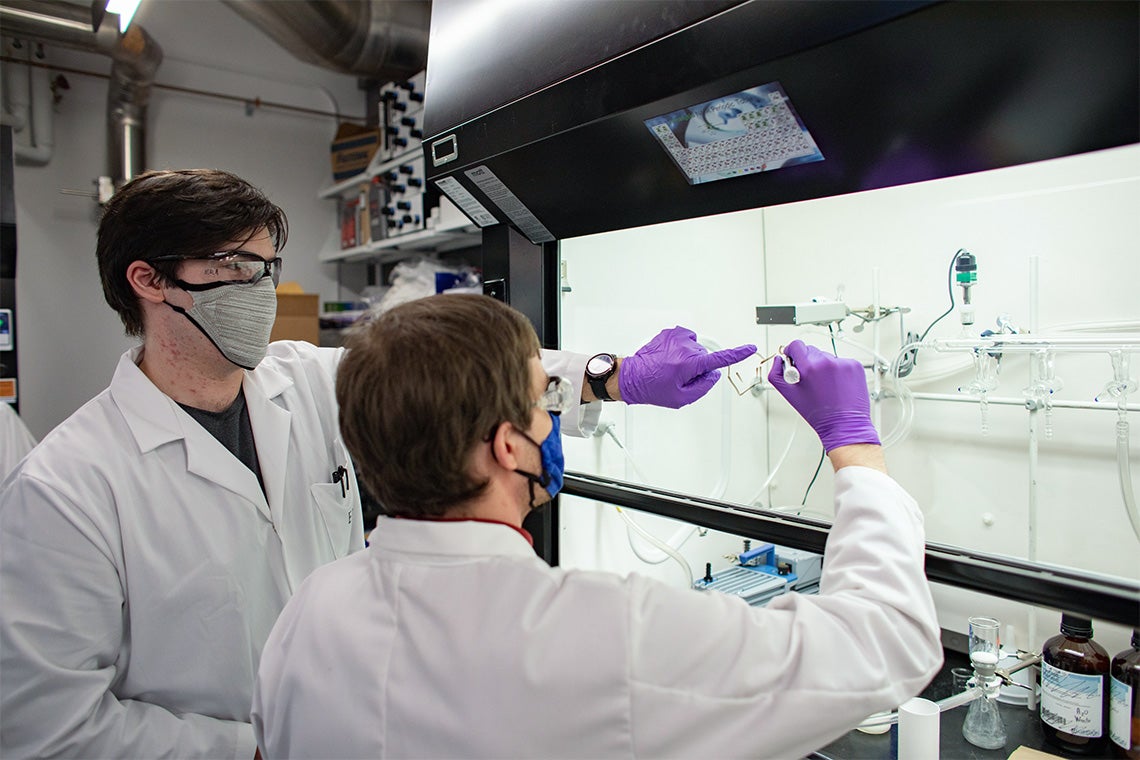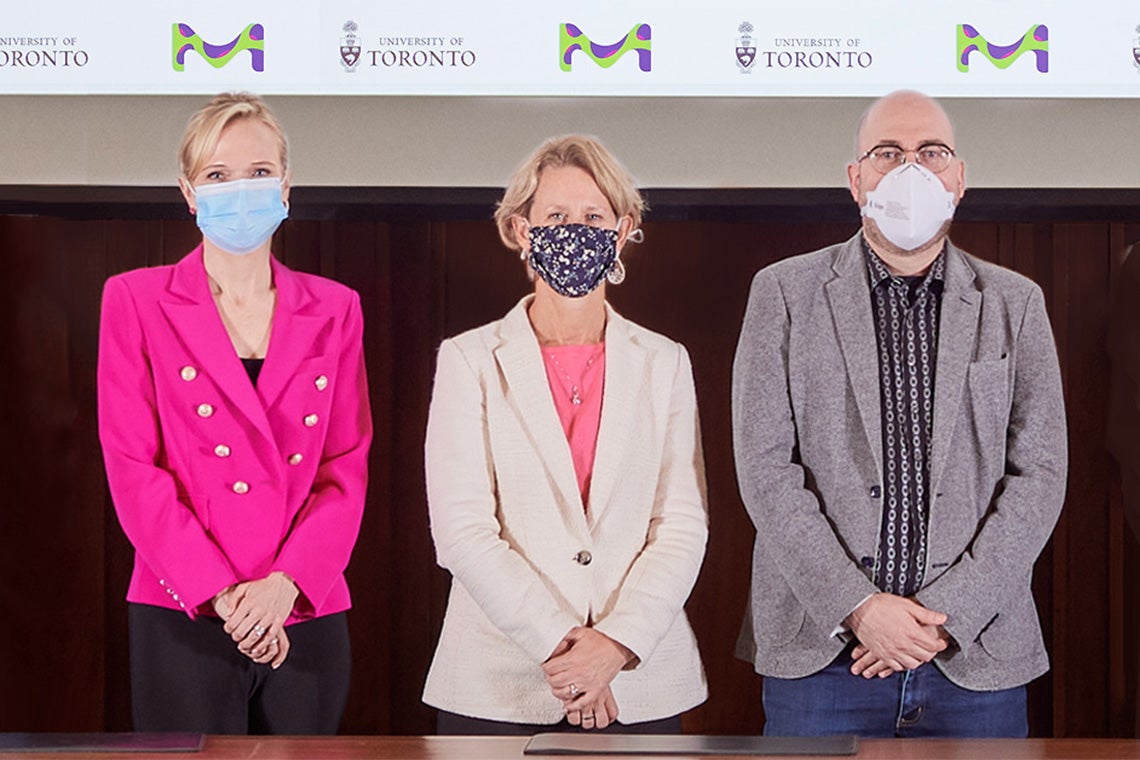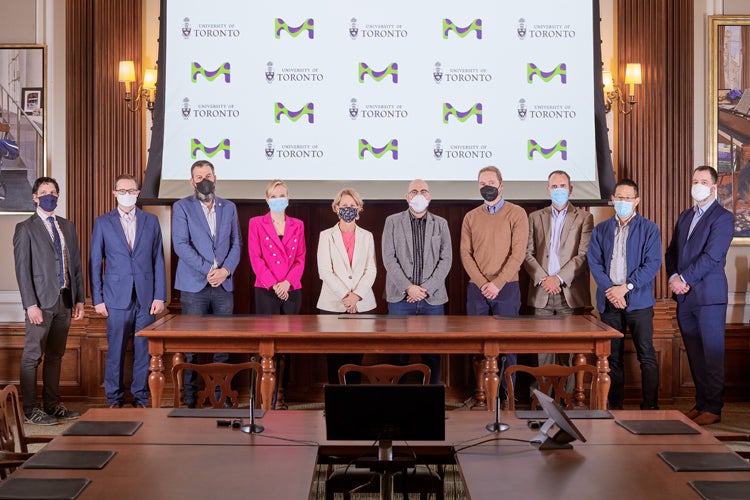
As it builds a global community to accelerate the discovery of materials for a healthier, more sustainable future, the at the University of Toronto recently welcomed a visit from : Merck KGaA, Darmstadt, Germany.
The collaboration aims to advance the emerging field of accelerated discovery using self-driving labs, which combine artificial intelligence, robotics and advanced computing to rapidly design new materials and molecules.
Self-driving labs can reduce the time and cost associated with bringing advanced materials to market from an average of 20 years and $100 million to as little as one year and $1 million.
“Advancements in how technology is developed through artificial intelligence will transform discovery of new molecules and materials for health care, life science and electronics,” said Laura Matz, chief science and technology officer at Merck KGaA, Darmstadt, Germany, one of the world’s leading science and technology companies.
“To drive innovation in the field of artificial intelligence for R&D and robotic experimentation, we need joint efforts, and the Acceleration Consortium at the University of Toronto is convening the best and brightest in the field to get this work done. If we are able to develop advanced materials significantly faster in the future, it will be a game changer in providing solutions for human progress.”

From left to right: Christine Allen, U of T’s associate vice-president and vice-provost, strategic initiatives; Laura Matz, chief science and technology officer at Merck KGaA, Darmstadt, Germany; and Alán Aspuru-Guzik, director of the Acceleration Consortium (photo by James Morley)
Workforce development is a critical element across many sectors, a demand that the Acceleration Consortium will help to address with the . The program will upskill the existing workforce and train the next generation of scientists on the novel skills and tools needed to propel the field of accelerated discovery.
“The materials that will power our society in this century need to be circular economy-friendly, sustainable, inexpensive and high-performance,” said Alán Aspuru-Guzik, director of the Acceleration Consortium and a professor in the departments of chemistry and computer science in U of T’s Faculty of Arts & Science.
“To find these materials as quickly as possible, this work cannot just be done at a single lab, or a single university, and not just in universities or government labs, but together with leading industry partners like Merck KGaA, Darmstadt, Germany.”

Representatives of the Acceleration Consortium at U of T and Merck KGaA, Darmstadt, Germany. From left to right: Illan Kramer, Sean Caffrey, Alex Mihailidis, Christine Allen, Laura Matz, Alán Aspuru-Guzik, Jacob Woodruff, Steven Johnston, Christopher Yip and Padraic Foley (photo by James Morley)
The Acceleration Consortium comprises nearly 100 researchers from U of T and over 40 other universities across the world; 20 partners from industry, government and the artificial intelligence community; and a growing network of 30 self-driving labs. As one of its anchor partners, Merck KGaA, Darmstadt, Germany will help to set the consortium’s short-, medium- and long-term fundamental and applied research priorities.
The consortium is driving the materials and molecular innovation needed to address some of the world’s major challenges, from pandemics and climate change to sustainable electronics technology and clean energy. By bringing together academia, government and industry partners, the Acceleration Consortium is building a community of experts, regulators, innovators, investors and end-users to expedite research translation and commercialization that is critical for a cleaner, richer and healthier world.
“The University of Toronto’s Acceleration Consortium understands the value of bringing partners together across disciplines, sectors and geographies, an approach that first attracted Merck KGaA, Darmstadt, Germany, a company with a long history of scientific exploration and entrepreneurship,” said Christine Allen, U of T’s associate vice-president and vice-provost, strategic initiatives.
“Collaboration is critical for innovation, especially when the work has the power to transform materials discovery and, in turn, improve our lives and our world for the better.”
Aspuru-Guzik believes that major industrial players across a diversity of sectors are a key component to scaling this work. Having partners commit to collaborating with each other on pre-competitive research and on an ongoing basis is an important piece of the consortium’s mandate.
“We are thrilled to embark on this journey of discovery together and are equally proud to know that Merck KGaA, Darmstadt, Germany views the Acceleration Consortium as a bet worth going all in on from the start,” he said. “We look forward to changing the world, together.”
Housed at the Faculty of Arts & Science at U of T, the Acceleration Consortium is one of the University’s . Learn more about how U of T partners with industry at the .








